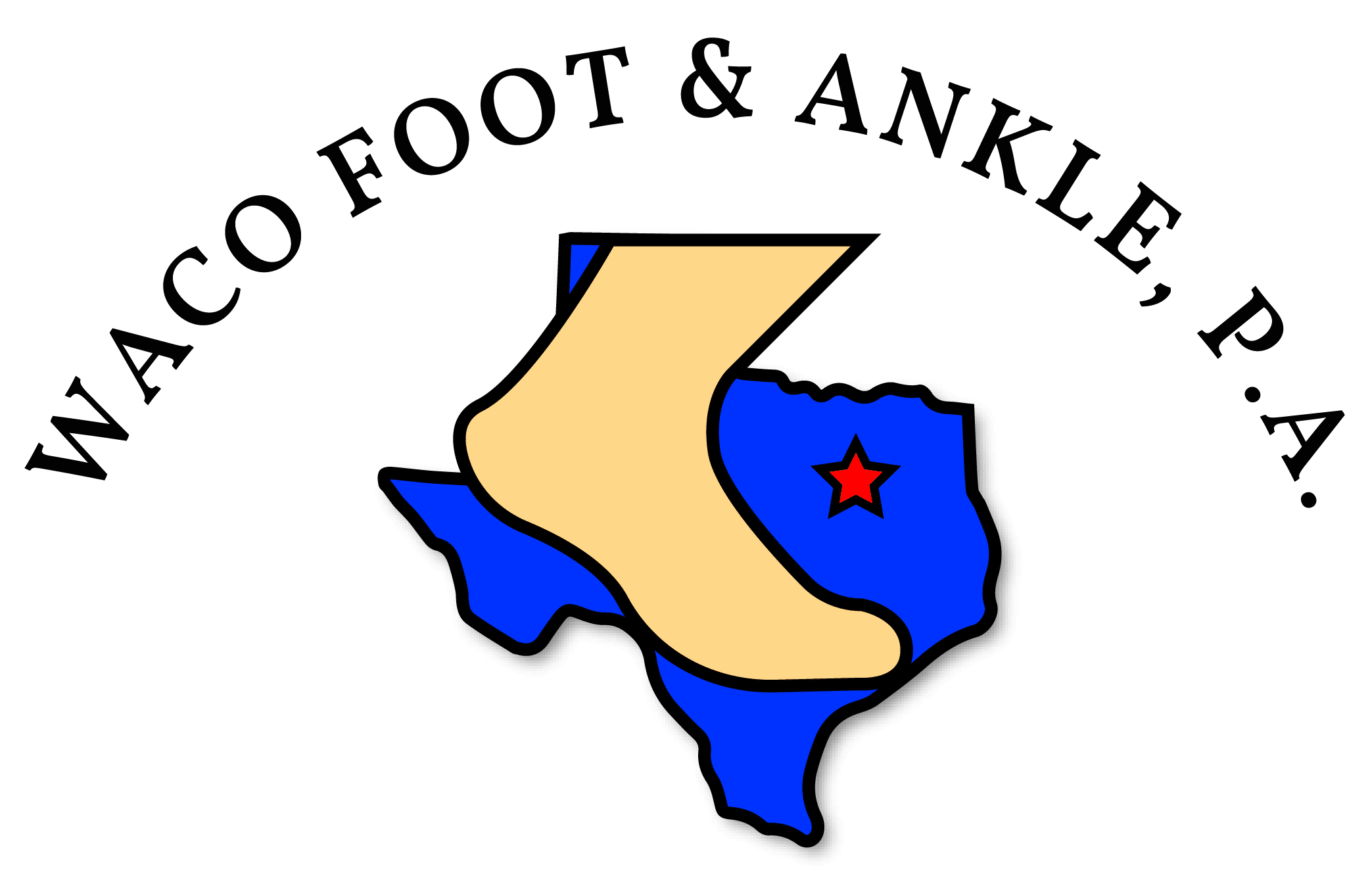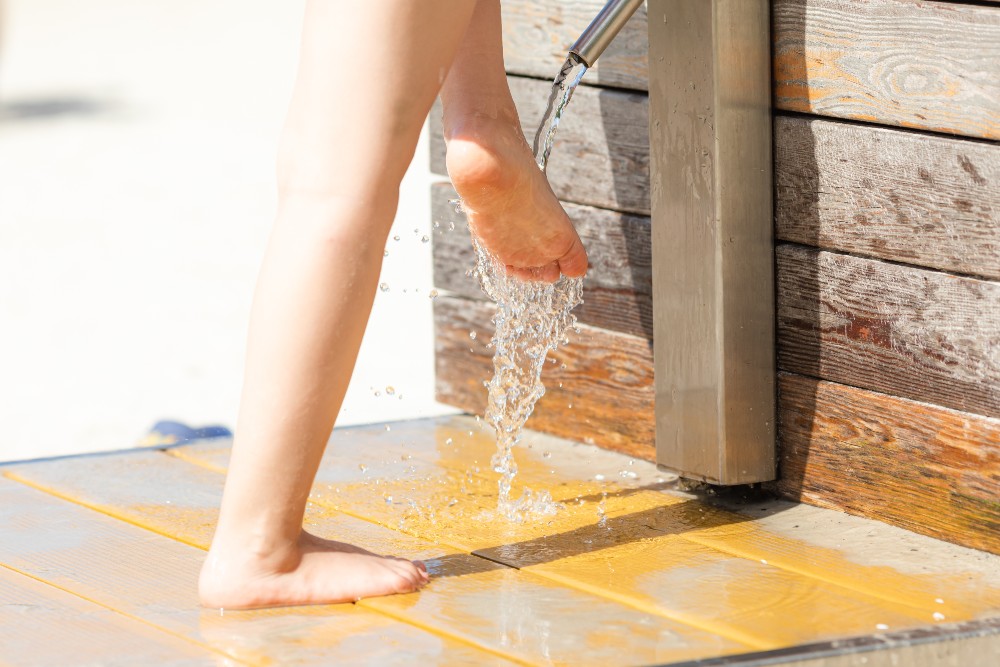Skin and Nails
At Waco Foot & Ankle, we understand the importance of healthy skin and nails in maintaining optimal foot health. Skin and nail conditions can cause discomfort and affect your daily activities. In this comprehensive guide, we will discuss common skin and nail conditions, provide tips for care, and offer professional solutions to address these concerns.
Common Skin and Nail Conditions
Here are some of the most frequently encountered skin and nail conditions:
Athlete’s Foot
Athlete’s foot is a common fungal infection that affects the skin of the feet. It often causes itching, redness, and peeling. Practicing good foot hygiene, wearing moisture-wicking socks, and keeping your feet clean and dry can help prevent this condition. If you suspect you have athlete’s foot, our podiatrists can provide effective treatment, including antifungal creams, powders, or oral medications, to alleviate the symptoms and prevent recurrence.
Blisters
Blisters are fluid-filled pockets that form on the skin due to friction or pressure. They can be painful and may develop from ill-fitting shoes or repetitive rubbing during physical activities. Proper footwear selection and using protective padding can minimize the risk of blisters. If you have a blister that is causing discomfort or is at risk of infection, our podiatrists can provide expert care, including drainage, sterile dressing, and advice on preventing future blisters.
Plantar Warts
Plantar warts are caused by a viral infection and commonly appear on the soles of the feet. They can be painful and have a grainy texture. Our podiatrists can evaluate your plantar wart and recommend the most suitable treatment option, which may include topical medications, cryotherapy, or surgical removal.
Corns and Calluses
Corns and calluses are thickened areas of skin that form due to repeated pressure or friction. They commonly occur on the feet and can cause discomfort or pain. Our podiatrists can safely remove corns and calluses, providing relief and recommending measures to prevent their recurrence. Proper footwear, cushioning pads, and regular exfoliation can help prevent the formation of corns and calluses.
Ingrown Toenails
Ingrown toenails occur when the edges of the nails grow into the surrounding skin, causing pain, redness, and swelling. Proper trimming techniques and wearing shoes with adequate toe space can help prevent ingrown toenails. If you have an ingrown toenail, our podiatrists can provide professional treatment, including nail trimming, removal of the ingrown portion, and guidance on preventing future occurrences.
Fungal Toenails
Fungal toenail infections can result in thickened, discolored, and brittle nails. They are often caused by exposure to warm and moist environments, such as locker rooms or sweaty shoes. Prompt treatment is crucial to prevent the infection from spreading to other nails. Our experienced podiatrists can diagnose fungal toenails and recommend appropriate treatment options, including topical or oral antifungal medications, laser therapy, or nail debridement.
Black Toenails
Black toenails are often caused by repetitive trauma or injury to the nail. They can occur due to activities like running or wearing tight-fitting shoes. If you have a black toenail, our podiatrists can assess the condition and provide appropriate care. Treatment may include nail trimming, protecting the nail bed, and addressing underlying issues to prevent recurrence.
Tips for Taking Care of the Skin and Nails on Your Feet
To maintain healthy skin and nails on your feet, consider the following tips:
- Practice good hygiene: Wash your feet regularly with mild soap and warm water. Dry them thoroughly, paying attention to the spaces between your toes.
- Moisturize: Apply a moisturizer to keep your skin hydrated, especially if you have dry skin.
- Trim nails properly: Cut your toenails straight across, and avoid cutting them too short. Smooth any rough edges with a file.
- Wear proper footwear: Choose shoes that provide ample toe space, have good arch support, and are made from breathable materials.
- Rotate your shoes: Alternate your footwear to allow them to dry fully and reduce the risk of fungal infections.
- Protect your feet: Use foot powder or antiperspirant to keep your feet dry, and wear clean, moisture-wicking socks.
- Avoid walking barefoot: Protect your feet from potential injuries and infections by wearing sandals or shoes in public places.
- Regular self-examinations: Check your feet and nails regularly for any changes, such as discoloration, swelling, or lesions. Seek professional care if you notice any abnormalities.
Contact Us Today
If you are experiencing skin or nail conditions or have any concerns about the health of your feet, do not hesitate to reach out to the experienced podiatrists at Waco Foot & Ankle. Our dedicated team is committed to providing expert diagnosis, personalized treatment plans, and compassionate care to help you achieve healthy, pain-free feet.
Contact Waco Foot & Ankle today at 254-776-6995 or fill out our contact form online to schedule an appointment with one of our knowledgeable podiatrists. We are here to support you on your journey to optimal foot health.


